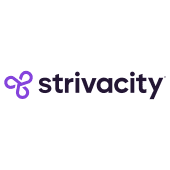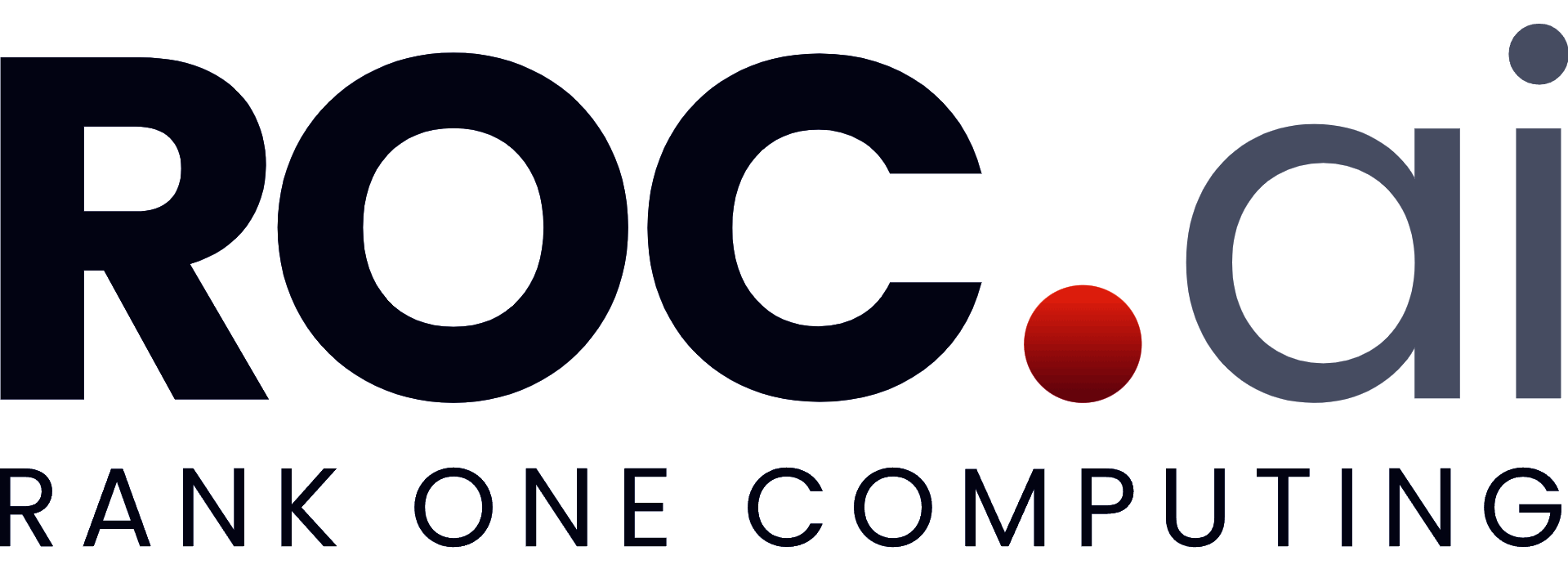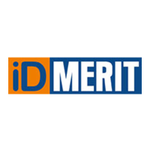What Is Identity Verification Software?
identification Verification Software is cutting-edge technology that verifies a person's identification using biometric authentication, document verification, and multi-factor authentication. It is a critical tool in today's digital landscape, when identity theft and fraudulent behavior are on the rise. This program collects and analyzes personal information, documents, and biometric data, including fingerprints, facial recognition, and voice recognition.
It then compares this information to other sources, such as government databases, credit bureaus, and public records, to determine the legitimacy of an individual's identification. Identity Verification Software provides a secure and effective means for organizations to guarantee that their clients are who they claim to be. It may be implemented into a variety of platforms, including websites, mobile apps, and in-person verification processes, making it useful for both businesses and consumers.
Identity Verification Software helps organizations limit the risk of identity fraud and cyber assaults by safeguarding critical client data and reducing financial losses. It also aids compliance with regulations and standards such as Know Your Customer (KYC) and Anti-Money Laundering (AML), which are required in many sectors. Furthermore, this program offers a streamlined and hassle-free onboarding experience for consumers, removing the need for lengthy and manual identity verification.
It also enhances the entire customer experience by lowering wait times and preserving the confidentiality of their personal information. When selecting Identity Verification Software, customers should evaluate accuracy, reliability, integration options, and regulatory compliance. They should also seek for capabilities such as real-time verification, AI-powered fraud detection, and scalability to fulfill their expanding business requirements. Overall, Identity Verification Software is an important tool for businesses working in the digital age, as it provides a reliable solution for validating identities and preventing identity fraud. With its comprehensive features and benefits, it is an excellent choice for enterprises of all sizes and industries.
What Are The Recent Trends In Identity Verification Software?
Identity verification software has grown in popularity in recent years as businesses and organizations seek to protect themselves from fraud and maintain confidence in the online world. With technological developments and a greater emphasis on security, the landscape of identity verification software has evolved to accommodate evolving client expectations.
One of the most significant trends is the adoption of biometric identification systems like face recognition and fingerprint scanning. These solutions provide a more secure and user-friendly way to identity verification than standard methods such as passwords or security questions. Another trend is the growing use of AI and ML in identity verification software.
AI and ML, with their ability to analyze and find patterns in massive data sets, can improve verification accuracy and speed while lowering the risk of human error. There is also an increasing demand for seamless, omnichannel verification experiences. Customers want to be able to verify their identities quickly and simply across multiple devices and channels, whether via mobile app, internet, or in-person engagement.
Furthermore, regulatory compliance requirements are encouraging the development of stronger identity verification software. This includes anti-money laundering (AML) and know your customer (KYC) requirements, which require firms to verify their clients' identities to prevent financial crimes. In addition to these trends, there has been an ongoing emphasis on improving user privacy and data security in identity verification software.
This includes things like data encryption, stringent data management standards, and privacy-by-design principles. Overall, recent advancements in identity verification software emphasize the necessity of a simple, safe, and user-friendly verification procedure. Businesses must carefully evaluate these developments when analyzing and selecting the finest identity verification software solution for their purposes.
Benefits Of Using Identity Verification Software
Identity verification software provides numerous benefits to firms trying to expedite their customer onboarding process and defend against fraud.
Here are some major advantages of using identity verification software:
1. Accurate And Efficient Verification: Identity verification software uses advanced technology, such as artificial intelligence and machine learning, to accurately and effectively verify individuals' identities. This eliminates the need for human verification, which is time-consuming and error-prone.
2. Reduced Fraud And Risk: Businesses that verify individuals' identities can considerably reduce fraud and risk. This is especially important for companies that handle sensitive data, such as financial institutions, healthcare, and e-commerce.
3. Regulation Compliance: Many businesses have stringent rules in place to ensure consumer identity, such as KYC (Know Your consumer) and AML. Identity verification software enables firms to comply with these rules while avoiding penalties.
4. Improved Customer Experience: By expediting the verification process, identity verification software may provide a smooth and hassle-free experience for customers. This can increase client happiness and retention.
5. Cost Reduction: Manual verification processes can be costly in terms of time and resources. Implementing identity verification software can help firms reduce operational costs, making it a cost-effective choice.
6. Global Coverage: Identity verification software can verify identities from all around the world, making it ideal for enterprises that have a global consumer base. This eliminates the need for numerous identification verification methods, saving both time and money.
7. Customization: Identity verification software can be modified to match the unique requirements of various industries and businesses. This means that organizations can tailor the level of verification required according to their risk assessment.
Important Factors To Consider While Purchasing Identity Verification Software?
Identity verification software is a critical tool for businesses in today's digital environment. From fraud prevention to regulatory compliance, this software is critical to guaranteeing client data security and the integrity of corporate activities. However, with so many options on the market, it can be difficult for consumers to select the best software for their individual requirements.
To help you make an informed selection, here are some key considerations to consider when selecting identity verification software.
1. Security Features: Investing in identity verification software is primarily motivated by the desire to protect sensitive data. As a result, it is critical to look for software that includes strong security features like encryption, biometric authentication, and multi-factor authentication. These features will not only protect your data, but will also deliver a smooth and user-friendly experience for your clients.
2. Compliance: Meeting regulatory obligations is a primary responsibility for organizations of all sizes. When selecting an identity verification program, ensure that it meets industry standards and requirements such as GDPR, KYC, and AML. This will not only secure your business but also foster customer trust.
3. Flexibility: No two firms are same, thus their identity verification requirements may differ. Choose software that is flexible in terms of integration, customization, and scalability. This ensures that the software can adapt to your changing business requirements and grow alongside your corporation.
4. User Experience: The success of any software is dependent on the user experience. A difficult and time-consuming verification process can reduce client satisfaction. Look for software that provides a straightforward, rapid, and user-friendly authentication procedure to provide your consumers a great experience.
5. Reliability And Accuracy: The accuracy and dependability of identity verification software are critical considerations when making a transaction. Select software that employs advanced technologies like artificial intelligence and machine learning to get accurate and dependable results. This not only reduces the chance of fraud, but also saves you time and money in the long run.
6. Customer Support: As with any technology, there may be technical issues or questions when using identity verification software. It is critical to select a provider who provides dependable and accessible customer assistance to assist you in the event of any complications. This will result in a smooth and seamless experience for both you and your clients.
What Are The Key Features To Look For In Identity Verification Software?
Identity verification software has evolved into an indispensable tool for businesses and organizations across a wide range of industries. With the rise of online transactions and distant activities, having a dependable system for verifying the identity of consumers and users is critical for preventing fraud and maintaining security. However, with so many options available on the market, it can be difficult to choose which identity verification software is best for your organization.
To assist you make an informed selection, we've created a list of critical features to look for when comparing various identity verification solutions.
1. Reliable Identity Verification Methods: The first and most important factor to evaluate is the method employed for identity verification. A complete identity verification software employs a variety of verification techniques, including biometric authentication, document verification, and background checks. This ensures a high level of accuracy while lowering the possibility of fraudulent activity.
2. User-Friendly Interface: The software should offer a fluid and user-friendly experience to both your employees and customers. It should be simple to explore and understand, with straightforward directions for visitors to follow. A complex and confusing interface can cause errors and delays, reducing the overall efficiency of the verification process.
3. Real-Time Verification: In today's fast-paced environment, delays in verification might result in missed commercial chances. Look for software that provides real-time verification, which allows you to check a customer's identification immediately. This not only increases client happiness but also saves your company time and money.
4. Customizable Rules And Settings: Every organization has different verification requirements depending on its industry, customer base, and risk tolerance. Your identity verification software should allow you to change the rules and settings to meet your individual needs. This flexibility allows you to have more control over the verification process while also ensuring regulatory compliance.
5. Smooth Integration: Ideally, your identity verification software should work easily with your existing systems and applications. This will streamline your operations and make the verification process easier for your personnel. Make sure the program is compatible with your present IT infrastructure.
6. Fraud Detection Capabilities: In addition to identity verification, the software should be capable of detecting fraud. This includes the ability to detect fraudulent or changed documents, flag questionable activity, and assign risk levels to each verification attempt. This information will allow you to make rapid and informed decisions to defend your company from potential dangers.
7. Compliance With Regulations: Compliance standards for identification verification vary by industry. Check that the software you select complies with applicable legislation and standards, such as Know Your Customer (KYC) and Anti-Money Laundering (AML) requirements. This will not only help your company stay compliant, but will also foster confidence among consumers and partners.
Why Do Businesses Need Identity Verification Software?
Today's businesses encounter several obstacles in confirming the identities of their consumers and staff. From escalating cyber risks to compliance rules, firms in a variety of industries have recognized the importance of accurate and secure identity verification. Here's where identity verification software comes in. Identity verification software uses advanced technology, such as artificial intelligence and biometrics, to validate individuals' identities.
It assists businesses in determining the legitimacy of an individual's identification by cross-referencing their personal information against multiple databases and records. One of the primary reasons organizations want identity verification software is to prevent fraud. Businesses are increasingly vulnerable to identity fraud as internet purchases and remote employment become more common. This can lead to huge financial losses, reputational damage, and possibly legal implications.
Identity verification software assists organizations in ensuring that the person they are engaging with is who they claim to be, lowering the chance of fraud. In addition to fraud prevention, identity verification software assists organizations in complying with rules such as Know Your Customer (KYC) and Anti-Money Laundering (AML). These regulations compel firms to verify their customers' identities and do due diligence to prevent money laundering and other illicit acts.
Identity verification software automates this procedure, giving organizations a dependable and fast means to remain compliant. Another advantage of identity verification software is its potential to simplify the customer onboarding and account creation processes. By automating identity verification, organizations can save time and resources on manually verifying each customer's identification.
This not only enhances the client experience, but also enables businesses to enroll customers more swiftly and efficiently. Identity verification software also allows businesses to grow their consumer base globally by validating IDs from other countries and areas. This is especially essential for digital businesses because it allows them to reach a larger audience while maintaining transaction security.
How Much Time Is Required To Implement Identity Verification Software?
The time required to implement identity verification software varies based on the type of software, system complexity, and organization size. On average, the implementation procedure can last from a few days to a few months. The first step in installing identity verification software is usually scheduling an initial consultation with the program provider.
During this discussion, the provider will learn about your specific goals and requirements and provide you an estimated schedule for implementation. Once you've decided on a software provider, the implementation process begins with integrating the software into your current systems. This may include tailoring the software to your specific business operations and integrating it with your database and user management systems.
Next, your team will need to be instructed on how to utilize the software properly. This can range from a few hours of training for simple software to an extensive training program for more complex solutions. When switching from an old system to new identity verification software, data migration may be required.
Depending on how much data needs to be sent, this can prolong the implementation process. Once the software is fully integrated and your team has been educated, it must undergo testing to confirm that it is running properly. This is an important step to ensure that the program works properly and meets your specific requirements.
After all testing is done and any necessary changes have been made, the software will be ready to go online. The actual software launch and rollout time may vary depending on your organization's demands and operations. Overall, deploying identity verification software may appear to be a time-consuming operation. However, it is critical to take the necessary steps to ensure a smooth transition and successful software adoption inside your firm.
What Is The Level Of Customization Available In Identity Verification Software?
Identity verification software provides a variety of customization possibilities to meet various corporate demands and requirements. The extent of customisation available varies per software supplier, but in general, buyers can tailor the program to their individual use cases and desired user experience. Branding, user interface, and interaction with current systems are some of the most frequent customization possibilities for identity verification software.
This enables firms to maintain a consistent brand image while smoothly integrating the software into their current workflows. Another key component of customisation in identity verification software is the option to select the amount of verification needed. This can range from basic identification checks to more sophisticated verification methods, depending on the level of risk and the industry in which the company works.
Furthermore, some software providers support custom rule-setting, allowing organizations to build their own set of rules and verification criteria. This allows firms to modify the program to meet their specific compliance and risk management requirements. Furthermore, the amount of customization applies to the types of documents and data that can be validated.
For example, some software can verify government-issued IDs, while others may contain biometric data like facial recognition or fingerprint scans. Overall, the customization options in identity verification software give businesses flexibility and control over the verification process, ensuring that it meets their unique demands and expectations. It also provides a more smooth and efficient user experience for organizations and their customers. When looking for identity verification software, consumers should carefully evaluate and compare the level of customisation given by various providers to discover the greatest fit for their needs.
Which Industries Can Benefit The Most From Identity Verification Software?
Identity verification software is a strong tool that may help a variety of sectors. In today's digital age, reliable and secure identity verification is becoming increasingly important for financial institutions and healthcare providers, as well as retailers and e-commerce enterprises.
Here are some industries that will profit the most from deploying this software:
1. Banking And Financial Services: The banking and financial services industry is one of the most likely to gain from identity verification software. These institutions manage sensitive personal and financial information for their consumers, making them an easy target for identity theft and fraud. With identity verification software, they can simply verify their customers' identities and prevent fraudulent activity like as account takeovers and fraudulent transactions.
2. Healthcare: Identity verification software can also be quite beneficial in the healthcare industry. With the proliferation of telemedicine and online consultations, secure and reliable patient verification has become critical. This software can assist healthcare providers in verifying their patients' identities and ensuring that they are administering the appropriate treatment to the correct person.
3. E-commerce: E-commerce has grown significantly in recent years, as an increasing number of people prefer to shop online. This has also resulted in an upsurge in online fraud, including account takeovers and bogus identities. Identity verification software can assist e-commerce businesses in verifying the identity of their consumers, preventing fraud, and providing a secure buying experience for its users.
4. Travel And Hospitality: The travel and hospitality business can also profit from identity verification software. With the rise of online bookings and check-ins, hotels, airlines, and other travel providers must verify the identification of their consumers. This not only prevents fraud, but also speeds up the check-in process and improves the overall client experience.
5. Government Organizations: Identity verification software can also be useful for government organizations like licensing and registration. This program can assist them in verifying the identity of persons asking for licenses or benefits, lowering the risk of fraudulent activity and guaranteeing that only qualified individuals receive government services.
Conclusion
In conclusion, identity verification software is critical in today's digital world, where fraud and identity theft are common. It provides businesses and organizations with a strong tool for verifying the identities of their customers, workers, and users, preserving the confidentiality of sensitive information and avoiding fraudulent activity. The software industry is crowded with multiple identity verification solutions, each with its own set of capabilities, making it difficult for customers to make an informed choice.
We hope that this buyer's guide has provided you with a thorough overview of the most important elements to consider when selecting the best identity verification software for your individual requirements. First and foremost, you must examine your business needs and choose which form of identity verification solution will best suit your industry and regulatory compliance requirements.
Next, examine the amount of protection provided, the simplicity of interaction with your existing systems, and the software's scalability to support future expansion. Additionally, consider the verification options available, such as biometric authentication, document verification, and identity database checks. Look for software that includes a variety of verification methods to guarantee a strong and dependable verification process.
Furthermore, consider the user experience, since a smooth and fluid verification procedure is critical for reducing drop-offs and increasing customer happiness. Finally, look at the software provider's reputation, customer service, and pricing plan to guarantee you're investing in a reliable and cost-effective solution. We strongly advise asking demos and free trials to evaluate the software's performance and become acquainted with its features before making a final selection.
By carefully examining these elements and completing extensive research, you may choose identity verification software that not only meets but surpasses your expectations, giving you complete security and peace of mind. Make a prudent investment in identity verification software to safeguard your company and customers against the ever-changing threat of fraud and identity theft.






















